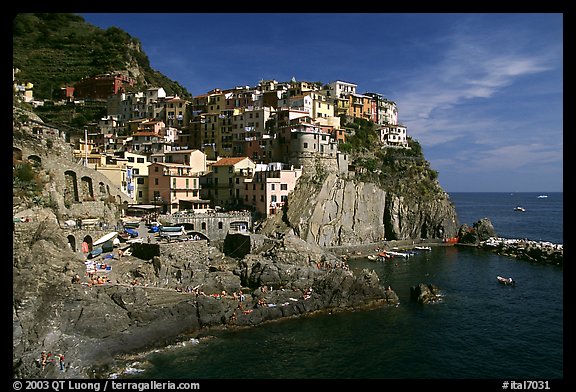Sharon had never looked better: tall, slim, stylishly dressed, vibrantly alive and smiling. In the photo of the seven women Sharon’s presence immediately stood out. Even though I had spent very little actual time with her I felt like she was a close friend. Several years ago Sharon and her husband John had twice generously let my family and my sister Mary’s family stay in their beautiful new home over two different Christmas vacations. We had come to Seattle for the holidays at the same time Sharon’s family had vacationed in Europe. She had stocked the refrigerator and the pantry with all the food we could possibly need plus made sure there were extra candles for all the holiday holders decorating the house as she didn’t want us to run out of anything especially at Christmas. She also made sure the outdoor jacuzzi was working.
I had heard others tell similar stories about Sharon. How she’d send hubby John off in his jeep to rescue someone caught stranded by a flood. How someone who called her up to see how she was doing would end up talking for hours about themselves because Sharon really wanted to know how they were doing. How a teen-ager having a hard day would go over to Sharon’s house to hang out. How she didn’t just send a treat to her own daughter during test week--she sent one to every student in the school. Sharon had a knack for making all of us feel special.
When I saw the photo of Sharon, I smiled albeit a little bitter-sweetly. Sharon had finally succeeded in losing weight, but it was only in order to meet the requirements for a bilateral lung transplant which she needed after twelve years of battling the debilitating, often fatal, effects of taking the diet drug Phen-Fen.
The previous Saturday Sharon and her husband John had sent out 150 invitations to both newly-made and long-term friends to join them on May 22nd to celebrate their 25th wedding anniversary. They were renewing their wedding vows or re-upping as Sharon’s family called it. It seems they wanted everybody who had ever been a part of their twenty-five years of marriage to be there. The big day was already being prepared for: the caterer had the menu well in hand, the house was being repainted and a blue sapphire ring for Sharon had been designed and made.
I was in Seattle on a spur-of-the-moment trip back home to look at a house that was up for sale. Since it was so close to Easter, I decided to stay on and come back to London on Easter Monday. That meant I would also be there to celebrate my niece Caitlin’s 20th birthday on March 29th. All my family plus Sharon’s daughter, Kimmy, would be there. That afternoon Kimmy called to say she couldn’t make it because her mom wasn’t feeling well and she wanted to stay home with her. The previous day Sharon had been to the clinic for a lung x-ray. Although it looked like she might have pneumonia, she still felt well enough after the visit to go with John to put an offer down on a house on Lake Sammamish. Since she could no longer be more than fifteen to thirty minutes away from the hospital in case lungs became available, this house on the lake would be their summer place until she could travel again. So we had Caitlin’s birthday dinner that night with just the family and no Kimmy.
When I opened my email the next morning, I was shocked to find a short email from my sister Lynne saying Sharon had died the previous evening right around the time we were having dinner in the dining room. Even though we knew she was on the transplant list, couldn’t travel and didn’t always feel well, we didn’t see her as near death. She was intensely alive, planning her re-upping, buying a house, discussing details with her older daughter Jen about moving back to Seattle after she finished graduate school in May. In our minds being on the transplant list meant she was on the cusp of a whole new healthy life. We were prepared for this new life not for her death.
The funeral was Easter Monday or the day of my planned departure from Seattle but, of course, now I postponed it. That morning I walked into Lynne’s kitchen and much to my surprise heard that she had been asked by Sharon’s sister Carol to read the eulogy that she had written but didn’t think she could stand up and give without breaking down. Apparently Carol doesn’t know that my sister is the biggest crier of all time bar none. She is the last person in the world to ask to read a eulogy at a funeral. However, of course, Lynne said yes. She practiced several times and we all gave her tips on how not to cry, how to maintain her composure. We all lied saying we knew she could do it. And happily, for Sharon and her family, Lynne did do it, too--beautifully, calmly, clearly.
After Lynne Sharon’s two daughters each gave a eulogy. Standing together at the pedestal, dressed in black with red ribbons in their hair which matched the thousands of red roses decorating the church, they held hands as first one, then the other spoke.
Jennifer, 23-years-old, tall, confident, her mother’s wedding ring hanging from a long chain around her neck, spoke first. “I always asked my mom for advice on everything, absolutely everything,” she said, “small things and big things. Now that she is gone I’m trying to remember what advice she gave me all those times so I can hold on to it and use it in the years ahead.” Jen soon realized the advice was always pretty much the same no matter what the situation was—just do whatever was the most loving thing to do. “It was always about love, compassion, doing the kindest thing,” Jen said. “So from now on that is what I’m going to do just like my mother advised.”
I sat there in the pew wondering what my kids would say about me if I had died and they were giving my eulogy. Had I given them any words of wisdom to hold on to as Sharon had given her daughters?
The funeral was followed by a small beautiful graveside service. Afterwards we headed back to the family’s home where John had invited all those who had been invited to the wedding renewal to come by. The house painting was done, the caterer had put up a tent and laid a spread, and Kimmy wore the blue sapphire ring around her neck. The thousands of red roses now decorated the house and lawn.
John is a tall, lean, good-looking man. He is also a quiet man—the counterbalance for ebullient Sharon. At one point he invited anyone in the group who wished to share stories about her to come forward, but first he wanted to say something himself. “Twelve years ago,” he said, “when the doctor sat down with the two of us and told us Sharon had a year–and-a-half to live, her first response was, ‘Well, that doesn’t work for me. I have two daughters who need me when they hit puberty. John won’t be able to handle that.’” This set the pattern, John said, for how they lived after her diagnosis: set a goal, reach it, set another goal. For twelve years they just kept setting and reaching more goals. They also decided that since their time together might at any time be interrupted by “God taking a hand” they needed to make the most of it. They decided right then and there to become better parents to Jen and Kimmy, to intentionally open up more to each other, and to love each other and others more. “These last twelve years were the best years of our marriage,” he said. For a man of few words he had said a lot.
I am back in London now. Just yesterday on the phone Lynne told me that all those red roses are still beautifully decorating the house and lawn.
I don’t go to church much anymore. In fact, this might be the first year I didn’t even go on Easter which sort of makes me sad. But I didn’t exactly miss out on Easter either. On Easter Monday as I sat there in the church listening to Sharon’s eulogies, I knew for sure I was within touching distance of the Resurrection: Sharon’s love and spirit were everywhere.





